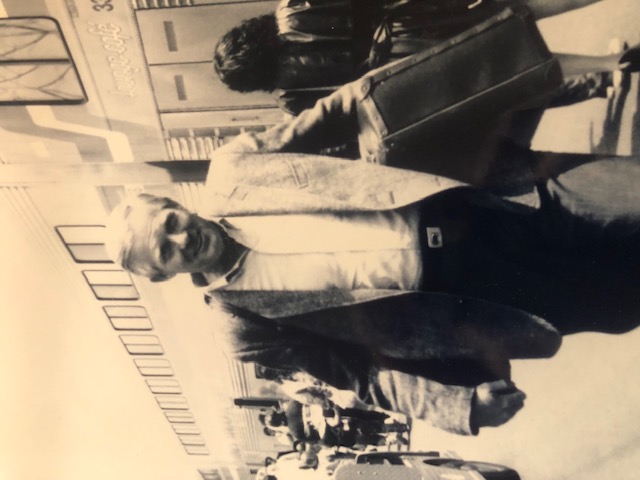
Drake University came with heavy burdens. Drake is a small liberal arts school with only a few thousand students, but they promised Vote Smart 40 interns a semester–a promise they could not keep. Efforts to attract students from surrounding schools were of little success, and the great National Internship Program we had built at our Montana Ranch evaporated. Turns out that neither members nor students excited about seeing snow-covered mountain peaks, pristine lakes and streams, bears, moose, beavers, elk and such, felt much the same about watching corn grow or hog slaughtering.
Securing enormous amounts of factual data and maintaining public trust and open records all voters, journalists and academics could depend upon, was never a problem. Exacting standards had been set since inception and were easily maintained.
However, replacing the losses in interns and member volunteers would be difficult. The loss would not be so much in labor as in cultivating lifelong supporters, financial and otherwise, along with the kind of income-generating mystique that comes with the public’s knowledge of so many selfless people working on their behalf.
For a time we could afford to patch things together by simply increasing paid staff. But each year’s loss of development through National Interns and member volunteers would be permanent if we stayed in Iowa.
There were three immediate concerns, the first being the Board:
Our board members, anchored in the principle of political opposites, were dying. How could we maintain political balance on the board when conservative vs. liberal no longer represented the national divide? Our board could not be a balance between truth and lie, fact and fabrication without becoming a ridiculous comedic farce.
Maintaining public confidence in integrity had but one answer: balancing the board with well known, articulate, respected representatives on opposing sides of major national issues like immigration, taxes, crime, health care, abortion, education, guns, and foreign policy. Many such leaders were willing, if not anxious to join the board, but the selection should not be up to me, but to whomever replaced me as I grew closer to retiring.
The second concern was money. With all our efforts advertising Vote Smart in major news organizations and web sites, little was accomplished. Trying to blurt out what we were doing in a few ad lines to a cynical public hardened by politicians and their operatives endlessly pitching swampland was a waste of time. We needed to earn more time from those that might consider helping us. The only time we ever got that kind of time from media was the day, years earlier, that the PBS NewsHour covered us swamping our Voter’s Research Hotline for days and generating tens of thousands of supporting members.
Emailing voters was like sending a rain drop to fall on the sun–it never got there. National news editors were never going to let our database, no matter how important, beat out a news story of the stark raving mad that was becoming the message of the day and every day.
So, our focus would be on personalized direct mail riveted on the facts in opposition to the new grotesque slathering’s of anti-factual nonsense abducting every major news outlet.
If I had a fundraising talent, it was talking to citizens directly about our idea in personal letters. Writing a personal letter to thousands at a time takes some considerable thought and testing. Over the years I had tested every imaginable tiny permutation that might impact, first the opening of a letter, then the reading of a story that would hit them in the gut with relief. I could tell you why not to use a window envelope, why to use a personal stamp, why putting “IF YOU WERE A FISH, YOU WOULD READ THIS,” gets a much better response than the nambie pambie, “YOUR VOTE YOUR RIGHT.” Why using a paper clip instead of a staple increases a reader’s interest, why personally signing a letter, which I learned to do a thousand in 20 minutes, will get you twice as many readers, why, if you can get them to open the envelope, that envelope is key and must be instantly tethered to your first sentence and then paragraph.
Most importantly why writing passionately, exposing who you are as if you were writing home to Mother, rather than “I want to get into your purse or wallet,” was everything at Vote Smart.
Now, with a Buffoon-in-Chief and without ever mentioning him, we had the perfect vehicle to get out our message about reality, truth and the essential facts necessary for successful self-governance. As always, I sent various drafts to friends, members and sometimes staff to meter possibilities.
Then I began the expensive testing, first sending out a few thousand to known involved voters, which got the hoped for positive reaction since the loss of the GREATEST GENERATION. I read every response, tweaked the letter again and tested again. The response was better with a few mailing lists making more on the first sending than they cost, which is unheard of.
A key was to know that the value in a return was not so much in what they gave initially but how much, now that you found another friend, they would give over time. Turned out that it was the perfect message to get us moving forward with a future that could only grow with a dangerous Buffon leading every news story with seismic waves of bull shit.
The third concern was Google. Artificial Intelligence (AI), used to inform and misinform, would shape democracy’s future. If there were any chance that self-governance could anchor itself in a future of reality in AI’s new world, there would need to be at least one trusted source for the facts that any voter could turn with confidence.
So, I cultivated contacts at Google with the notion that Google and Vote Smart could become that source. Vote Smart could provide the crucial component that protected the data under the controlling management of our staff and board, consisting of key figures representing every side of major issues, while they supplied the ability to provide even greater specificity tailored to the interests of every user.
It was a shot in the dark, but they were interested–only I hesitated, wanting to turn over its potential implementation to whomever would replace me.
Then the person I agreed to as my replacement, and those whom I had chosen to hire and supervise him turned my 30-year passion for the cause, and me, into what I had feared most since childhood: a nobody.
New Chapters once a week
Richard Kimball, Vote Smart Founder 1988
Sign up on my Blog at: richardkimball.org
